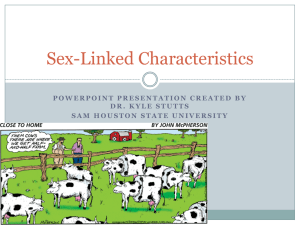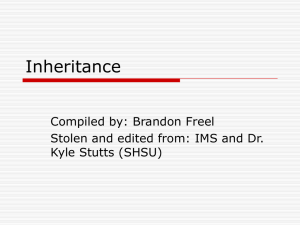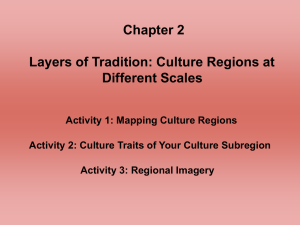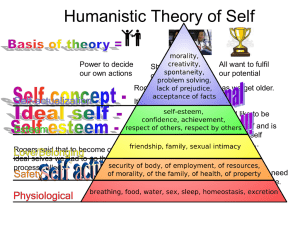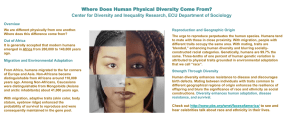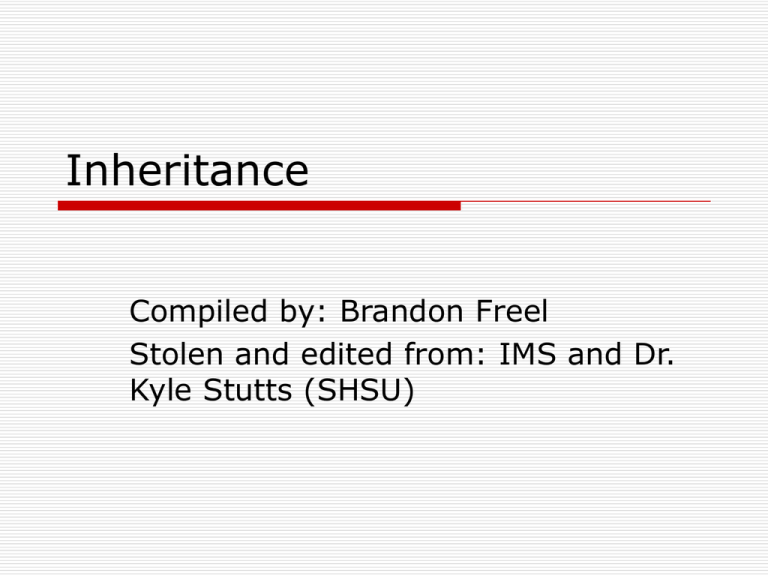
Inheritance
Compiled by: Brandon Freel
Stolen and edited from: IMS and Dr.
Kyle Stutts (SHSU)
Objectives
Discuss randomness in genetics.
Investigate principles of inheritance.
Comprehend how inheritance plays a
role in sex-linked genes
Explain the difference between sexlinked, limited, and influenced
inheritance
Randomness of Inheritance
First off genetics are random in nature
Prior to Mendel’s findings, the most widely
accepted thought involved a blending
theory of inheritance
No way to predict the combination of
genes in a gamete
Randomness of inheritance is critical from
an evolutionary standpoint and important
to the success of artificial selection
Inheritance
For a number of traits, gene expression
differs in males and females
The causes fall under 3 categories:
1)Sex-Linked
2)Sex-Limited
3)Sex-Influenced
Considering Multiple Traits
•Commonly, there are multiple traits that need
to be considered when mating animals.
•For example, consider that cattle can be
horned or polled and white-faced or red-faced.
•The horns and red-faced coloring are
recessive traits.
Considering Multiple Traits
If two individuals with two pairs of
heterozygous genes (each affecting a
different trait) are mated, the expected
genotypic and phenotypic ratios would
be:
Genotypes – 1 PPWW, 2 PPWw, 2 PpWW,
4 PpWw, 1 PPww,
2 Ppww, 1 ppWW,
2 ppWw, and 1 ppww;
Considering Multiple Traits
Phenotypes
•9 polled, white-faced;
•3 polled, red-faced;
•3 horned, white-faced; and
• 1 horned, red-faced offspring.
Sex-Linked Traits
•Sex-linked traits involve genes that
are carried only on the
X or Y
chromosomes, which are involved in
determining the sex of animals.
•The female genotype is XX, while
the male genotype is XY.
Sex-Linked Traits
The X chromosome is larger and
longer than the Y chromosome,
which means a portion of the X
chromosome does not pair with
genes on the Y chromosome.
Sex-Linked Traits
•Additionally, a certain portion of the Y
chromosome does not link with the X
chromosome.
•The traits on this portion of the Y
chromosome are transmitted only from
fathers to sons.
•Sex-linked traits are often recessive and are
covered up in the female mammal by
dominant genes.
Sex-Linked Traits
•The expression of certain genes, which are
carried on the regular body chromosomes of
animals, is also affected by the sex of the
animal.
•The sex of an animal may determine whether
a gene is dominant or recessive (Ex. Scurs in
polled European cattle).
Sex-Linked Traits
•In poultry, the male has the
genotype XX, while the female
has the genotype Xw.
•An example of a sex-linked trait
in poultry is the barring of
Barred Plymouth Rock chickens.
Sex-Linked Traits
If barred hens are
mated to nonbarred males, all of
the barred chicks
from this cross are
males, and the
non-barred chicks
are females.
Photo courtesy of Wikipedia.
Sex-Linked Inheritance
Ex- Tortoise shell color in cats
- mixture of color that appears in
patches
* orange, white, black, gray, tabby
* much white called calico
- always female (almost)
- Locus for orange color occurs on the
X chromosome
Sex-Linked Inheritance
Females OO
Males Oo
OO = Orange
O = Orange
Oo = Tortoiseshell
o = non-orange
Oo = non- orange
Sex- Influence Inheritance
Modes of gene expression differ between males
and females
An allele may be expressed as a dominant in
one sex and a recessive in the other
Scurs on cattle is a sex-influenced inheritance
The allele for scurs is dominant in males and
recessive in females
A male with one copy will be scurred, but a
female must have 2 copies
Genotype Males
PP SS
Polled
PP Ss
Polled
PP ss
Polled
Pp SS
Scurs
Pp Ss
Scurs
Pp ss
Polled
pp SS
Horned
pp Ss
Horned
Females
Polled
Polled
Polled
Scurs
Polled
Polled
Horned
Horned
Sex-Limited inheritance
Phenotypic expression is limited to one
sex
Ex. Milk production, and scrotal
circumference
These genes are not necessarily on the
sex chromosomes but are only expressed
in the male or female
Thought to be hormonally conditioned
Objectives
Discuss randomness in genetics.
Investigate principles of inheritance.
Comprehend how inheritance plays a
role in sex-linked genes
Explain the difference between sexlinked, limited, and influenced
inheritance
Objectives
Compare the difference between
simply-inherited and polygenic traits
Classify genotypic and phenotypic
characteristics.
Draw conclusions from selective trait
characteristics.
Traits
Simply- Inherited and Polygenic traits
Simply Inherited are traits that are affected by
only a few genes
- Coat Color, Horns
Qualitative or categorical
- Either/ or expression
- Measured with numbers or continuous
- white- spotting in cats (1-9 numerical
rating)
Typically affected very little by environment
Traits
Polygenic traits;
Affected by many genes with no gene having an
occurring influence
-Growth rate, milk production, ribeye area
Typically quantitative or continuous in
expression
- phenotypes are usually described by
numbers
- weaning weights, milk yield, ribeye area
Greatly influenced by environment
- Lack of fed, Heat/cold stress
What is more important
Polygenic traits are more important
- Growth rate, fertility, milk production
- traits that determine productivity and
profitability
But, Some markets are sensitive to
simply- inherited traits
- Coat/feather color, Polled, Genetic
defects are usually simply-inherited
Objectives
Compare the difference between
simply-inherited and polygenic traits
Classify genotypic and phenotypic
characteristics.
Draw conclusions from selective trait
characteristics.

